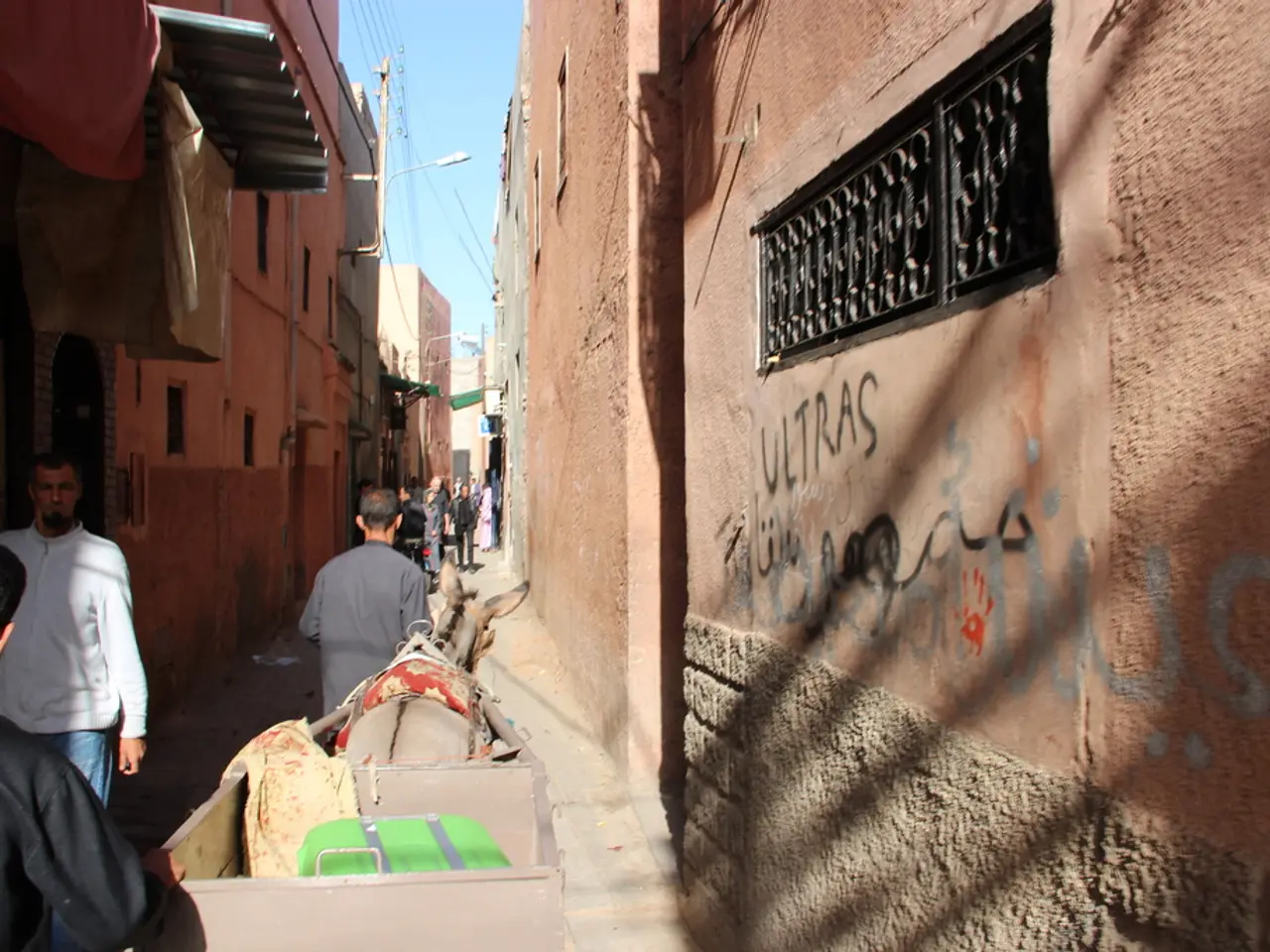International community's assessment of Palestinian statehood integrity hinges on United Nations' decision-making
The Palestine-Israel conflict remains a pressing issue in the international arena, with various proposals for a peaceful resolution in sight. Among these are the 2002 Arab Peace Initiative and the 2025 Cairo Peace Plan.
Key Western countries, such as the UK, France, Australia, and Canada, are contemplating recognizing the State of Palestine at this year's UN General Assembly. This move comes in response to Israel's failure to respond to these proposals and its decision to escalate conflict in the occupied territories.
Israel's actions, including the alleged killing and brutalizing of Palestinians in Gaza and the relentless grabbing of parts of the West Bank, have invited condemnation from friends and foes alike. The UN, whose primary purpose is to maintain international peace and security, conforming with principles of justice and international law, has been urging a diplomatic solution to the conflict.
The UAE, a key player in the region, has emphasized the need for a more durable peace, calling for a diplomatic solution to the Palestine-Israel conflict. Lana Nusseibeh, Assistant Minister for Political Affairs and Envoy of the Minister of Foreign Affairs of the UAE, has stated that annexation by Israel of Palestinian land would close the door to peace and integration, and betray the spirit of the Abraham Accords.
The Abraham Accords, which moved the region closer to peace than it had been for decades, are now at risk due to the potential Israeli annexation of the occupied West Bank. For the UAE, the issue of Israeli annexation is not just a matter of politics, but also a matter of principle and peace for the region.
Saudi Arabia and France are leading the effort to galvanize countries around recognition of the State of Palestine. However, it's important to note that recognizing statehood for Palestine does not guarantee a path towards permanent peace or a two-state solution.
The UN General Assembly will meet this year at its New York headquarters. This could be a make-or-break moment for the UN and its member states, as they are called upon to speak with one voice on the immediate end to the nearly two-year-long onslaught in Gaza and the resumption of the Middle East peace process.
In 2023, several countries, including France, Belgium, Canada, Ireland, Norway, Spain, and Slovenia, declared their intention to recognize the State of Palestine at the UN General Assembly, adding to the over 145 countries that had already recognized Palestine by then.
The international community is being urged to move beyond rhetoric and use its leverage over the Israeli government to end hostilities and return to the path of diplomacy. Lana Nusseibeh's call for building something better and more durable out of the ashes is an unambiguous call that the international community should get behind with no further delay.
Read also:
- Tobacco industry's suggested changes on a legislative modification are disregarded by health journalists
- Trump's Policies: Tariffs, AI, Surveillance, and Possible Martial Law
- Uncovering Political Ad Transparency: A Guide to Investigating opponent's Political Advertisements in the Digital Realm
- Elon Musk praises JD Vance's debate performance against Tim Walz








